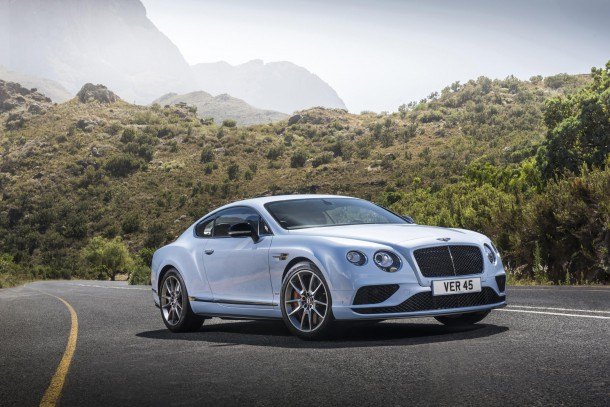High-end Car Registrations Threaten the Dream of Affordable Insurance

Rising insurance premiums are a plump grape in the cornucopia of adult annoyances, but they grow into a ripe apple when forces outside of your control cause them to skyrocket.
Now, imagine that there’s only one insurance provider, and you already pay taxes towards it. That’s the reality in several provinces north of the border, but one jurisdiction just crashed head-on into an unforeseen problem: new money, and the skyrocketing increase in six-figure vehicle ownership that came with it.
To save the owners of Malibus and Journeys from a major jump in premiums caused by ultra-pricey supercar repairs, one Canadian province has taken drastic steps.
As reported by Automotive News Canada, British Columbia will no longer cover vehicles costing $150,000 or more through its public insurance policy. Anyone who’s ever visited Vancouver knows the reason behind the move.
The city has gradually become a haven for the ultra-rich, including a large contingent of wealthy Chinese families (or the sons and daughters thereof). Ferraris and Bentleys ply the streets like pickups in Iowa. Already, the city has applied a new tax to empty houses to stem the flow of foreign capital that has, in part, sent home prices into the upper stratosphere. A standalone garage could set you back seven figures.
Now, the provincial legislature’s focus has turned to insurance. With every vehicle owner contributing to the same pot, the cash needed to repair the bumpers and body panels of high-end vehicles has become too much for low-end owners to bear. Hence the need for changes at the Insurance Corporation of B.C.
“If owners of high-end luxury cars can afford a high-priced car, they certainly can afford to pay higher premiums to cover the real cost for their repairs,” said Todd Stone, B.C.’s Minister of Transportation and Infrastructure.
In a statement, the government tallied up the cost of repairing a 2015 Bentley Flying Spur W12. Assuming a low-speed collision, the price tag attached to the replacement of a fender, grille, headlight and intercooler comes to $38,000. Car owners in B.C. pay about $1,000 per year for basic coverage. According to government figures, the average collision repair bill for a normal car amounts to $2,500. That figure rises to $13,000 for a high-value” vehicle.
So far this year, B.C. has registered 3,000 vehicles costing $150,000 or more. That’s up 30 percent from three years ago. In total, last year’s public payout for ultra-lux vehicle repair was $2.3 million.
Unfortunately, the changes needed to force high-end car buyers to buy private insurance will move at the blistering speed of government, meaning a stop gap solution comes first. With this in mind, the province will immediately double the basic insurance premium for super high-end vehicles.
[Image: Bentley]

More by Steph Willems
Latest Car Reviews
Read moreLatest Product Reviews
Read moreRecent Comments
- Lorenzo They won't be sold just in Beverly Hills - there's a Nieman-Marcus in nearly every big city. When they're finally junked, the transfer case will be first to be salvaged, since it'll be unused.
- Ltcmgm78 Just what we need to do: add more EVs that require a charging station! We own a Volt. We charge at home. We bought the Volt off-lease. We're retired and can do all our daily errands without burning any gasoline. For us this works, but we no longer have a work commute.
- Michael S6 Given the choice between the Hornet R/T and the Alfa, I'd pick an Uber.
- Michael S6 Nissan seems to be doing well at the low end of the market with their small cars and cuv. Competitiveness evaporates as you move up to larger size cars and suvs.
- Cprescott As long as they infest their products with CVT's, there is no reason to buy their products. Nissan's execution of CVT's is lackluster on a good day - not dependable and bad in experience of use. The brand has become like Mitsubishi - will sell to anyone with a pulse to get financed.


































Comments
Join the conversation
That's the byproduct of socialism and government controls. Less choices and ultimately people become poorer because of it. But that's OK, just keep listening to Trudeau and what a great man Castro was - soon you can become just like the Cubans.........
If you only have one insurance provider, the basic insurance should be "pay at the pump", and it should be a no-fault system so that if you have a high-priced car, you have to pay separately for a supplement policy. For those that talk about free markets yada yada, the markets don't work when you only have one insurance provider. Secondly, when people talk aobut not wanting to pay for bad drivers - guess what, on average we are average drivers. Speaking as a lawyer, our tort system (and likely Canada's too) is not very efficient at apportioning financial responsibility for poor driving.